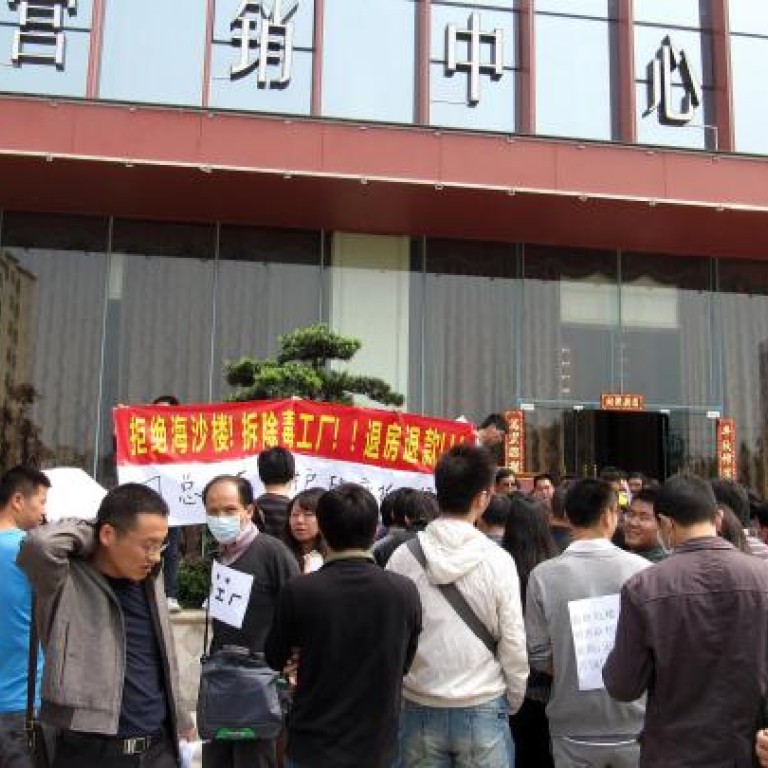
Hong Kong concrete test result shocks Jiayu Garden flat owners
Jiayu Garden residents voice alarm that the salt level in their sample is just below Hong Kong's maximum limit and exceeds mainland findings
Flat owners of Shenzhen's Jiayu Garden, who suspect that the developer had used cheap sea sand in the concrete, are shocked to learn that a sample from their block barely passed Hong Kong's standard for chloride ions.
Hundreds of them had staged protests in the past few weeks despite the government's assurance that their flats are safe.
The sample, provided by a flat owner at Block 8B, contained 0.34 per cent chloride ions, just below the maximum limit of 0.35 per cent, according to a laboratory test that commissioned.
MateriaLab, a private firm accredited by the Hong Kong government, conducted the test.
The finding shows a higher level of chloride ions than the tests - using methodologies different to MateriaLab's - by Shenzhen and national authorities, who respectively said they found 0.099 per cent and 0.111 per cent choride ions in the basement wall of Block 8. The national standard is 0.30 per cent.
The private residential estate in Longgang district was among 14 major building projects in Shenzhen that were put on hold last month as local government officials tested concrete samples for untreated sea sand after a national television expose triggered concerns over building safety.
Sea sand contains high levels of salt and chloride that can corrode steel reinforcement bars, weakening buildings and even cause them to collapse.
Xin Yi Real Estate, whose subsidiary developed Jiayu Garden, said the results of the tests by the Shenzhen and national authorities showed the development's chloride ion content met the national standards.
The Shenzhen Housing and Construction Bureau said "the property owners should believe the government" but it declined to comment on the Hong Kong test finding.
However, the residents, who did not believe the mainland test results, had taken a sample near a basement wall that they believed officials had left behind after taking samples, and sent it to Hong Kong for analysis.
"This test result is a terrible blow to me," said a flat owner. "Even though the methodologies are different, the discrepancy in the results of Hong Kong and the official tests is just too large."
Chan Chi-ming, head of construction at Hong Kong's Institute of Vocational Education, said: "You randomly pick up a sample and it almost hits the maximum limit. There is a chance the concrete may start to peel off … in five or seven years."
However, Tommy Lo Yiu, a professor of civil and architectural engineering, said the lab test was inconclusive, as a proper assessment should cover a number of samples. "But it's worth conducting more tests at more spots if the owners are worried," he said. "They should also watch to see whether the concrete is cracking and whether maintenance is needed."
